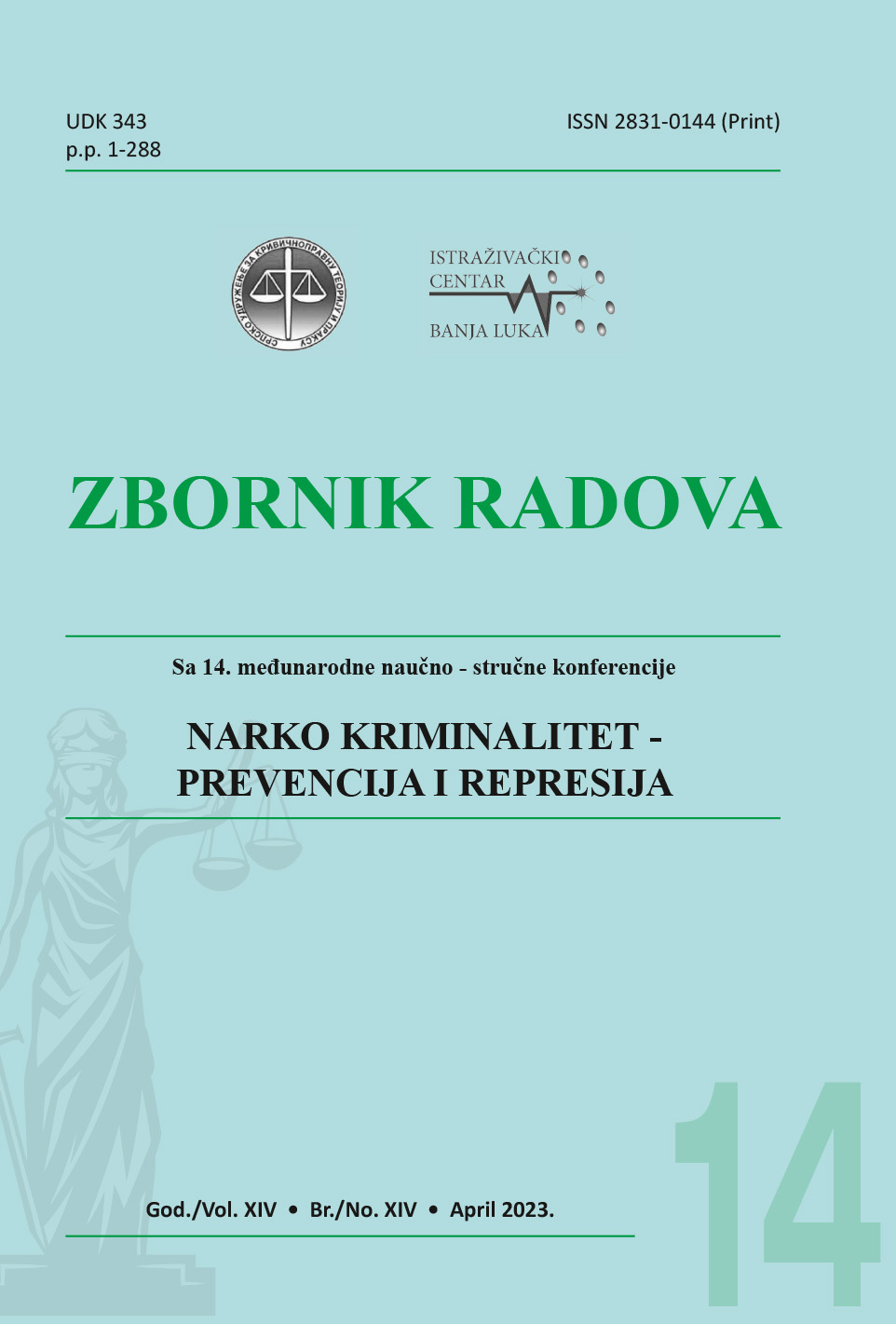ASSESSMENT OF THE AGGRIEVED PARTY’S ROLE WHEN DECIDING ON A SENTENCE
DOI:
https://doi.org/10.7251/CEST1423096RKeywords:
perpetrator, aggrieved party, sentencing, injured party’s consentAbstract
Sentencing is one of the most important questions both in criminal law theory and practice. In a certain sense, all criminal law provisions have their manifestation precisely in the form of sentencing. Contemporary legal systems have set rules which the courts must observe when deciding on a sentence. These rules are stipulated by Article 42 paragraph 1 of the Criminal Code.
The subject of this paper is the manner of assessing the aggrieved party/victim’s role when deciding on a sentence. First we examine the concept of the aggrieved party, then move on to talk about the relationship between the perpetrator and the aggrieved party, with a special emphasis on genuine repentance, and the influence of this relationship on the sentencing. Something that might be significant when deciding on a sentence is whether the aggrieved party will “join the criminal prosecution”. Finally, we present the notion of the injured party’s consent and its influence on the elimination of the substance of a crime, i.e., of illegality.
